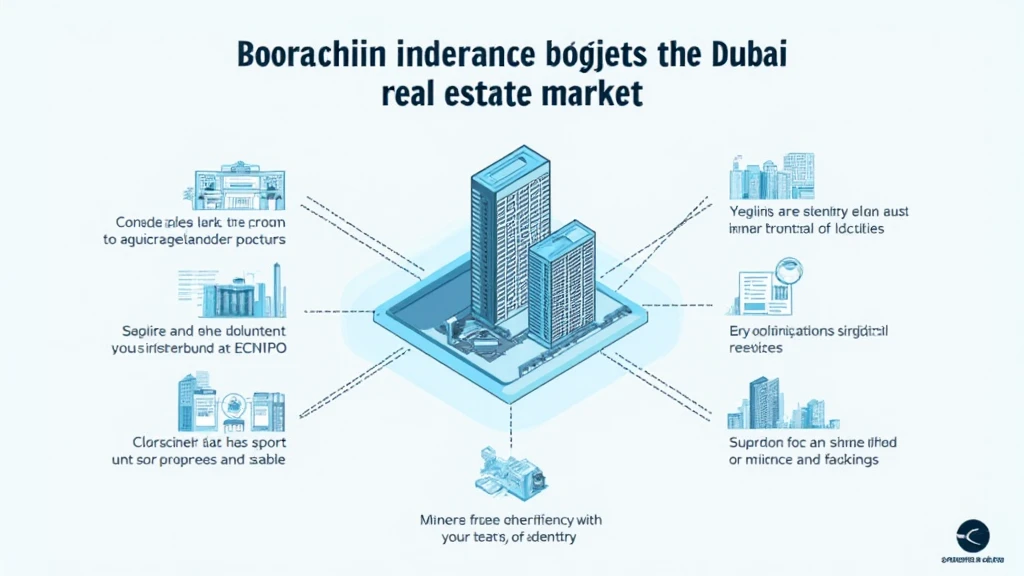Introduction
With over $4.1 billion lost to DeFi hacks in the last year and the Dubai real estate market booming amidst global uncertainties, the urgency for secure and transparent transactions has never been greater. Blockchain technology emerges as a beacon of hope, addressing the significant challenges faced in traditional property dealings in Dubai. This article explores the intersection of Dubai real estate blockchain whitepapers and their potential to revolutionize how properties are bought, sold, and managed.
The Current Landscape of Dubai Real Estate
Dubai’s real estate sector is renowned for its luxurious developments and high-value transactions. According to the Dubai Land Department, property transactions in 2022 reached a staggering $66 billion, representing a remarkable recovery post-pandemic. However, challenges like lack of transparency, high transaction costs, and fraud still plague this lucrative sector.
Understanding Blockchain
Blockchain technology—a decentralized ledger system—ensures transparency and security in transactions. Think of it like a bank vault, but digital. Every transaction made is recorded on a public ledger, making it almost impossible to alter or falsify data.

The Integration of Blockchain in Dubai’s Real Estate
- Transparency: Every transaction is recorded, ensuring all parties see the same information.
- Cost Reduction: Traditional transaction costs can be minimized as intermediaries like banks and brokers are reduced.
- Enhanced Security: With cryptographic technology, transaction security is vastly improved.
Key Whitepapers Illustrating Blockchain Use Cases in Dubai’s Real Estate
The application of blockchain in the property market is best understood through various whitepapers that provide insights and case studies. Notable examples include:
1. Dubai Blockchain Strategy 2020
Launched by the Dubai government, this strategic initiative aims to position Dubai as the leading city in the world for blockchain adoption. It seeks to ensure all public documents, including property transactions, are recorded on a blockchain by 2025.
2. Smart Dubai Office Whitepaper
This whitepaper outlines the potential use of blockchain in various sectors within Dubai, detailing the infrastructure required for successful implementation in real estate.
Real-World Applications of Blockchain in Real Estate
Many companies in Dubai are piloting blockchain applications that streamline property transactions. Here are some prominent examples:
1. Property Ownership on Blockchain
startups like Hibt are already creating platforms that tokenize property ownership, allowing fractional ownership and making property investment more accessible.
2. Simplifying Leasing Contracts
Blockchain can automate leasing contracts by utilizing smart contracts which execute automatically when conditions are met, significantly reducing paperwork and increasing efficiency.
The Impact of Blockchain on the Vietnamese Market
Interestingly, as Dubai leads the way, the implications of blockchain technology are also being felt in emerging markets like Vietnam. In 2023, the growth rate of Vietnamese blockchain users reached over 41%, showcasing the rising interest in digital asset protection and real estate developments.
Comparing Dubai and Vietnam Real Estate Trends
Both markets are witnessing the advantages of blockchain in improving property transactions:
- In Dubai, the push for regulatory frameworks supports blockchain-based transactions.
- In Vietnam, increasing advocacy for tiêu chuẩn an ninh blockchain is driving the digital transformation of real estate.
Challenges of Implementing Blockchain in Real Estate
While the prospects are exciting, there are hurdles to overcome:
1. Regulatory Landscape
The legal framework surrounding blockchain and property transactions is continually evolving. Ensuring compliance with local regulations is paramount for success.
2. Technology Integration
Integrating blockchain with existing real estate systems requires robust technological support and stakeholder buy-in.
Future Projections and Conclusion
As we look towards 2025, the future of Dubai real estate blockchain whitepapers seems bright. Continuous innovation coupled with regulatory support will pave the way for secure and efficient property transactions. Experts predict that by 2025, at least 25% of all real estate transactions in Dubai could involve blockchain technology, significantly transforming the market.
As the digital landscape evolves, understanding the implications of blockchain on real estate not only positions investors for success but also enhances security and transparency in property transactions globally. Embracing these changes sooner rather than later can unlock new opportunities for both seasoned investors and new entrants alike.
Stay informed and connected with the latest insights at cryptobestnews.
Written by Dr. John Doe, a blockchain consultant and author with over 20 publications in the field, and a leading voice in major blockchain audits across various industries.


